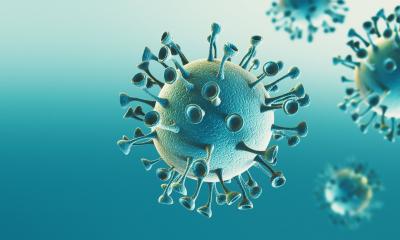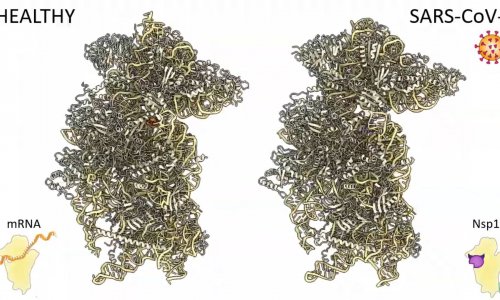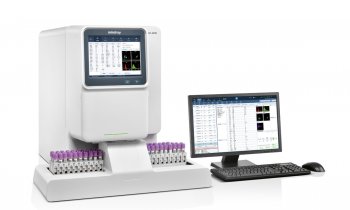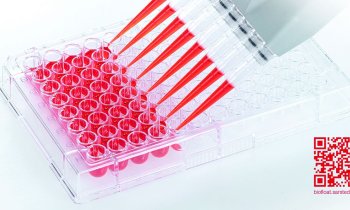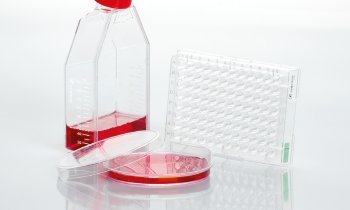News • Fending off the coronavirus
The role of T-cells in SARS-CoV-2 virus defense
Our immune system can efficiently fend off viral diseases. Two types of immune cells play an important role in this process: The T-cells, which firstly can directly destroy virus-infected cells and secondly enable the formation of efficient, virus-neutralizing antibodies by B-cells.
Image source: HFCM Communicatie, Corona virus Covid-19 FC, CC BY-SA 4.0
These two cell types also play a crucial role in the immune defense against SARS-CoV-2 infection. Whereas antibody tests are already routinely performed, only little is known about the T-cell response against SARS-CoV-2 so far.
The research group of PD Dr. Juliane Walz at the Clinical Cooperation Unit Translational Immunology (KKE) of the University Hospital Tübingen and the Department of Immunology of the Interfaculty Institute for Cell Biology in Tübingen now succeeded in identifying the target structures (so-called T cell epitopes) for the T-cell response against SARS-CoV-2. For this work, more than 180 volunteers were analyzed after convalescence from COVID-19. The T-cell epitopes identified in the study enabled the detection of SARS-CoV-2 T-cell responses in 100 percent of convalescent donors after infection. This was also true for patients in whom no antibody response could be detected.
The researchers now published their findings in the renowned journal Nature Immunology.
These epitopes are not only important for the investigation and diagnosis of SARS-CoV-2 immunity, but may also represent the basis for the development of vaccines
Juliane Walz
Previous experience with two other corona viruses - SARS-CoV-1 and MERS-CoV-2 - as well as initial reports from convalescents’ after COVID-19 suggests that T-cell responses may also play a significant role in the defense against SARS-CoV-2, as is the case with all other viral infections. To characterize these SARS-CoV-2-directed T-cell responses the identification of the parts of the virus, so-called epitopes, which are recognized by the T-cells is fundamental. "These epitopes are not only important for the investigation and diagnosis of SARS-CoV-2 immunity, but may also represent the basis for the development of vaccines," says research group leader Juliane Walz.
In addition, the study, which was financed by the German Federal Ministry of Education and Research’s special funding line COVID-19, analyzed donor blood samples which were collected before the outbreak of the pandemic and thus had no contact with SARS-CoV-2. Strikingly, small amounts of SARS-CoV-2-directed T-cells, which recognize virus components, were identified in 81 percent of these unexposed donors. This could be due to previous contact of the donors with other human common cold corona viruses (HCoV-OC43, HCoV-229E, HCoV-NL63 and HCoV-HKU1) and sequence similarities of the SARS-CoV-2 T-cell epitopes with these HCoVs.
However, such cross-reactive T-cell detection is not equivalent to immunity against SARS-CoV-2: "The effect these preexisting cross-reactive SARS-CoV-2 T-cell responses in 81 percent of the population will be investigated further prospective studies," commented Juliane Walz.
Based on the findings of this study, the team of KKE together with the Immunology is currently developing a first clinical study, which will investigate a prophylactic vaccine against SARS-CoV-2, consisting of the here identified T-cell epitopes. This approach, which primarily aims at inducing T-cell responses against SARS-CoV-2, is further supported by first "long-term data" of Walz research group. First unpublished data of a follow-up study of the COVID-19 convalescent cohort - now six months after infection – still detects strong and even increasing T-cell responses against SARS-CoV-2, whereas the antibody responses, especially against the so-called spike protein, already showed a significant decrease.
Source: University Hospital Tübingen
04.10.2020



